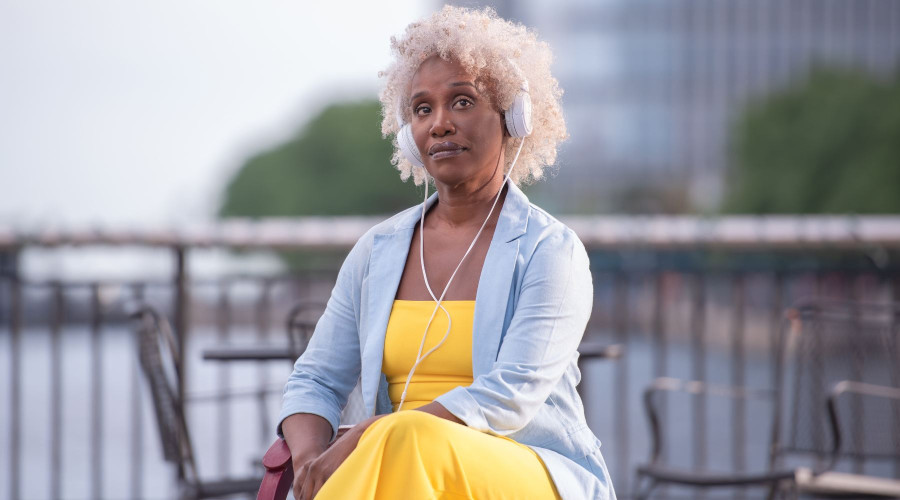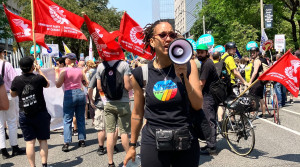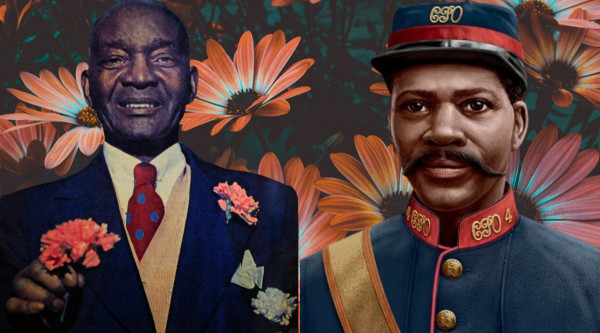Perimenopause is the transition leading up to it—a hormonal rollercoaster marked by irregular cycles, hot flashes, mood swings, and more.
One in four Canadians over 40—about 10 million people—are in perimenopause or menopause right now, according to the Menopause Foundation of Canada. Nearly all (95 per cent) experience multiple symptoms—an average of seven out of more than 30.
Hot flashes and night sweats get the headlines, but the reality is far stranger: random joint pain, skin that feels like it’s crawling with electricity, and changes in body odour you can’t quite explain. The symptoms are as varied as they are bizarre—and most people have no idea they’re hormonal.
The culture is also starting to shift. Celebrities like Halle Berry, Oprah Winfrey, and Jully Black are using their platforms to build menopause awareness. Berry has taken her advocacy to Capitol Hill, pushing for federal funding for menopause research. Canadian singer Jully Black was involved in the “Hot and Bothered” campaign, working to destigmatize conversations around women's health. Oprah has been candid about her own journey, revealing she once mistook menopausal heart palpitations for a cardiac emergency—a confusion many women share. Even comedy is getting in on the act—CBC’s Small Achievable Goals tackles the taboo head-on, giving voice to the chaos and confusion that comes with this phase of life.
{https://www.instagram.com/reel/DBrnon_BsnG/?hl=en}
But here’s the thing: while celebrities break the silence and comedies mine the material, the numbers tell an even bigger story. And for Black women, that story is a crisis. Black women are hitting menopause sooner, harder, and with fewer answers.
The data backs this up.
Extensive studies like the U.S.-based Study of Women’s Health Across the Nation (SWAN) study reveal that Black women tend to reach menopause earlier, experience more severe symptoms, and carry a heavier health burden compared to white women. Yet their pain is often dismissed, their symptoms misdiagnosed, and their treatment options limited. Add systemic racism, medical bias, and cultural silence around “the change,” and what should be a natural transition becomes a silent crisis.
This October, Women’s College Hospital (WCH) is sounding the alarm for World Menopause Month by debunking the myth that suffering is inevitable and spotlighting the disproportionate toll of perimenopause and menopause on Black women.
“Black women appear to have their last menstrual period earlier than our Caucasian counterparts, and their symptoms are often more intense,” says Dr. Candice Todd, a neurologist with a headache focus on Black women at WCH’s Department of Medicine Neurology. “We see worse hot flashes and night sweats, higher rates of depression, poorer sleep, and in my area of focus—worsening migraines. Yet the data on Black women in Canada is almost nonexistent.”
The hidden side of menopause
Most people think menopause equals hot flashes. But Dr. Todd and Dr. Sheila Wijayasinghe, a Menopause Society-certified family doctor and Medical Director of Primary Care Outreach at WCH, stress that the real story is far more complex and often missed in Black women.
“There are over 30 recognized symptoms,” says Dr. Wijayasinghe. “Beyond hot flashes and night sweats, we see brain fog, mood changes, anxiety, heart palpitations, joint pain, sleep disturbances, vaginal and bladder issues, and even hair and skin changes. Estrogen receptors are everywhere in the body, so when hormones fluctuate, everything from memory to metabolism to sexual health can be affected.”
Black women also experience unique gynecological burdens. Fibroids, for example, disproportionately affect Black women—up to 50% more likely than their white peers. Heavy, unpredictable bleeding, chronic fatigue, and pelvic pain often layer on top of the menopausal transition, leaving women exhausted and confused about what’s happening to their bodies.
And then there’s brain health. “I see so many women in their 40s and 50s come in worried about dementia, because they’re suddenly forgetting words or struggling to multitask,” says Dr. Todd. “That cognitive fog is a classic but under-discussed symptom of perimenopause.”
Stress, racism, and the wear on the body
So, why are symptoms worse for Black women? The answers are layered: biology, culture, and structural inequities.
“There’s something called allostatic load,” explains Dr. Wijayasinghe. “It's the wear and tear on the body from chronic stress—whether that’s racism, financial stress, or daily life pressures. For Black women, that cumulative stress accelerates health risks. It shows up as more severe hot flashes, sleep issues, mood changes, and even earlier onset of menopause.
It’s not just the body—it’s the healthcare system itself. Both doctors emphasize how systemic bias shapes the menopause journey.
“Black women are less likely to be offered hormone therapy, less likely to be referred to menopause clinics, and more likely to have their symptoms minimized,” says Dr. Todd. “Even when they proactively bring up menopause with their family doctor, too often the conversation ends with ‘just tough it out.’”
Dr. Wijayasinghe adds, “We know Black patients are dismissed more often in emergency rooms when it comes to pain management. That same bias shows up in menopause care, where symptoms aren’t taken seriously and the full menu of treatment options isn’t offered.”
Why the silence hurts
If medicine has failed to study menopause in Black Canadian women, culture hasn’t picked up the slack either.
“There’s a silence in our families about menopause,” says Dr. Todd, whose parents are from Trinidad and the Bahamas. “My mother never talked about it with anyone. For many of us, the narrative is: everyone before you went through it, so you just go through it too. Don’t complain. Don’t ask for help. Just suffer quietly.”
That cultural quietness collides with medical invisibility, leaving Black women doubly isolated. Symptoms get chalked up to stress, aging, or “being dramatic.” Careers, relationships, and quality of life suffer. And the silence perpetuates itself—if nobody speaks openly about menopause, the next generation enters it blind.
The treatment gap
Perhaps the cruellest irony is that treatments exist—hormone therapy, non-hormonal medications, localized estrogen—but Black women are less likely to get it.
“There’s a whole menu of options,” says Dr. Wijayasinghe. “Hormone therapy is one—but it’s not the only one. There are local estrogen treatments for vaginal and bladder symptoms, new non-hormonal drugs for hot flashes, as well as options like Gabapentin or antidepressants that also help. But our patients are too often told there’s nothing we can do, or they’re scared away by outdated research.”
That outdated research is the infamous 2002 Women’s Health Initiative study, which suggested hormone therapy increased the risk of breast cancer and heart disease. Those results have since been debunked for younger women in perimenopause—but the fear lingers, and doctors still under-prescribe.
“In medical school, I didn’t learn a single lecture on menopause,” says Dr. Todd. “We’re unlearning in real time.”
Meanwhile, the wait lists for menopause specialists in Toronto stretch two to three years. Private clinics are springing up—but at $100 to $3,000 per visit, they’re out of reach for most. “That's why we’re opening a new publicly funded menopause clinic at Women’s College next year,” says Dr. Wijayasinghe. “For the first time, patients will be able to self-refer. That’s a game changer.”
Building safe spaces
Treatment is medical. Healing is cultural. Both doctors emphasize that what Black women need most is a safe space to speak, share, and be heard.
“My single piece of advice?” says Dr. Todd. “Talk about it. Talk to your friends, your mother, your community. When you realize you’re not alone, it changes everything.”
Dr. Wijayasinghe agrees. “Track your symptoms. Believe your symptoms. If they’re affecting your life, you deserve care. And if one treatment doesn’t work, there are others. You don’t have to lose yourself to menopause. You can see yourself again.”
Breaking the silence
On October 29, hundreds of Black women will gather at The Bram & Bluma Appel Salon, located on the second floor of the Toronto Reference Library, for WCH’s fifth annual Black Women’s Healthcare Summit.
{https://www.instagram.com/p/DOJcvFZjJMD/}
This year’s focus—perimenopause, menopause, and chronic illness—reflects the urgency of a conversation that’s been delayed for far too long. Dr. Todd and Dr. Wijayasinghe will both be on the panel, but they’re clear that the real power of the event isn’t just the medical expertise.
“It’s about walking into a room and seeing people who look like you, asking the same questions you have,” says Dr. Todd. “That sense of community matters as much as the medicine.”
Dr. Wijayasinghe adds: “Even in Canada’s universal health system, care is not universal. Events like this are one way we start closing the gap.”
Because menopause is not a punchline, it’s not just “something to get through.” It’s a health issue—one that affects more than half the population. And for Black women, ignoring it means widening a health gap that’s already too wide.
This October, the silence ends.

 By
By 








